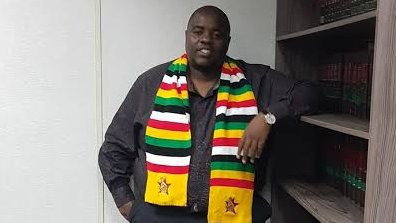
BY PROSPER TINGINI
Some of my religious articles have raised different kinds of emotions and controversies in the past and present. What I write is not based on some imagined fiction or hearsay, but purely based on the contents of the scriptures, mainly the Revised Standard Version, which was part of the educational curriculum of most schools which taught Bible Studies in this country. I strictly adhere to its contents in all my writings.
Regrettably, most religious scholars, readers and the generality of people do not read the Bible from the first page of the holy book, but rush to jump-start their study from the book of Genesis, also known in other circles as the First Book of Moses. Consequently most people miss vital information that is revealed in the first 10 pages of the Bible prior to Genesis that has a direct bearing on its contents. The highly important clues, some of which mentions some distortions to the contents of the original scriptures, are missed by a huge number of our fragmented denominations which use the Bible as their main source of religious learning.
I beg to be allowed to read through these initials 10 pages, so that I do not put my own interpretations into the contents. These were written by the Bible’s authors and editors, whatever the case. If you call this plagiarism, then you are misguided. Let it be. It might assist those with rigid minds to unlock some of their inflexible views on certain doctrines and beliefs. Let’s hear from the horse’s mouth, the Bible itself, what it says of its own journey to the present day.
On the first page of the Bible, the British and Foreign Bible Society inscribed thereon: THE BIBLE – containing the Old and New Testament (with illustrations by Horace Knowles). The Revised Standard Version – Translated from the original languages being the version set forth AD1611, revised AD1881-1885 and AD1901; compared with the most ancient authorities and revised AD1946-1952: Second Edition of the New Testament in AD1971.
The second page of the Bible gives us some copyright information and names and addresses of entities who participated in some of these revisions, which is not of much religious significance, hence I will skip this page.
The third page, the Preface, runs much deeper. It reads: “The Revised Standard Version of the Bible is an authorized revision of the American Standard Version, published in 1901, which was a revision of the King James Version, published in 1611. The first English version of the Scriptures made by direct translation from the original Hebrew and Greek, and the first to be printed, was the work of William Tyndale. He met bitter opposition. He was accused of willfully perverting (going astray) the meaning of the Scriptures, and his New Testaments were ordered to be burned as “untrue translations”. He was finally betrayed into the hands of his enemies, and in October 1536, was publicly executed and burned at the stake.
Yet, Tyndale’s work became the foundation of subsequent English versions (which are still used today), notably those of Coverdale, 1535; Thomas Mathew (probably a pseudonym for John Rogers), 1537; The Great Bible, 1539; the Geneva Bible, 1560; and the Bishops Bible, 1568. In 1582 a translation of the New Testament, made from the Latin Vulgate by Roman Catholic scholars, was published at Rheims.
- Chamisa under fire over US$120K donation
- Mavhunga puts DeMbare into Chibuku quarterfinals
- Pension funds bet on Cabora Bassa oilfields
- Councils defy govt fire tender directive
Keep Reading
The translators who made the King James Version took into account all of these proceeding versions; and comparison shows that it owes something to each of them. It kept felicitous phrases and apt expressions, from whatever source, which had stood the test of public usage. It owed most, especially in the New Testament, to Tyndale (the man burned to death for blasphemy and perversion – God forbid!!)
The King James Version had to compete with the Geneva Bible in popular use; but in the end it prevailed, and for more than two and a half centuries no other authorized translation of the Bible into English was made. The King James Version became the “Authorised Version” of the English-speaking peoples. The King James Version has with good reason been termed “the noblest monument of English prose”. Its revisers in 1881 expressed admiration for “its simplicity, its dignity, its power, its happy turns of expression…the music of its cadences, and the felicities of its rhythm”. It entered, as no other book has, into the making of the personal character and the public institutions of the English-speaking peoples. We owe to it an incalculable debt.
Yet, the King James Version has grave defects (Lord God forgive us!!) By the middle of the nineteenth century, the development of Biblical studies and the discovery of many manuscripts more ancient than those upon which the King James Version was based, made it manifest that these defects are so many and so numerous so as to call for a revision of the English translation (Praise the Lord!!)
The task was undertaken, by authority of the church of English, in 1870. The English Revised Version was published in 1881-1885; and the American Standard Version, it’s variant embodying the preferences of the American scholars associated in the work, was published in 1901.
Because of unhappy experience with unauthorised publications in the two decades between 1881 and 1901, which tampered with the text of the English Revised Version in the supposed interest of the American public, the American Standard Version was copyrighted, to protect the text from unauthorised changes. In 1928 this copyright was acquired by the International Council of Religious Education, and thus passed into the ownership of the Churches of the United States and Canada which were associated in this Council through their boards of education and publication.
The Council appointed a committee of scholars to have charge of the text of the American Standard Version and to undertake inquiry as to whether further revision was necessary. For more than two years the committee worked upon the problem of whether or not revision should be undertaken; and if so, what should be its nature and extent. In the end the decision was reached that there is need for a thorough revision of the version of 1901, which will stay as close to the Tyndale-King James tradition as it can in light of our present knowledge of the Hebrew and Greek texts and their meaning on the one hand, and our present understanding of English on the other.”
The fourth page starts: “In 1937 the revision was authorised by vote of the Council, which directed that the resulting version should ‘embody the best results of modern scholarship as to the meaning of the scriptures, and express this meaning in English diction which is designed for use in public and private worship and preserve those qualities which had given to the King James Version a supreme place in English literature’.
“Thirty-two scholars have served as member of the Committee charged with making the revision, and they have secured the review and counsel of an Advisory Board of 50 representatives of the co-operating denominations. The committee has worked in two sections, one dealing with the Old Testament and one with the New Testament. Each section has submitted its work to the scrutiny of the members of the other section; and the charter of the Committee requires that all changes to be agreed upon by a two-thirds vote of the total membership of the Committee. The Revised Standard Version of the New Testament was published in 1946. The publication of the Revised Standard Versions of the Bible, containing the Old and New Testaments, was authorised by vote of the National Council of the Churches of Christ in the USA in 1951.”
Next week we shall continue with the Part 2 of the Bible’s own Historical Story, as written in its introductory pages.
- Prosper Tingini is the Scribe of the Children of God Missionary Assembly – God’s messengers. Contact details: Mobile/WhatsApp: 0771 260 195. Email address: [email protected]










